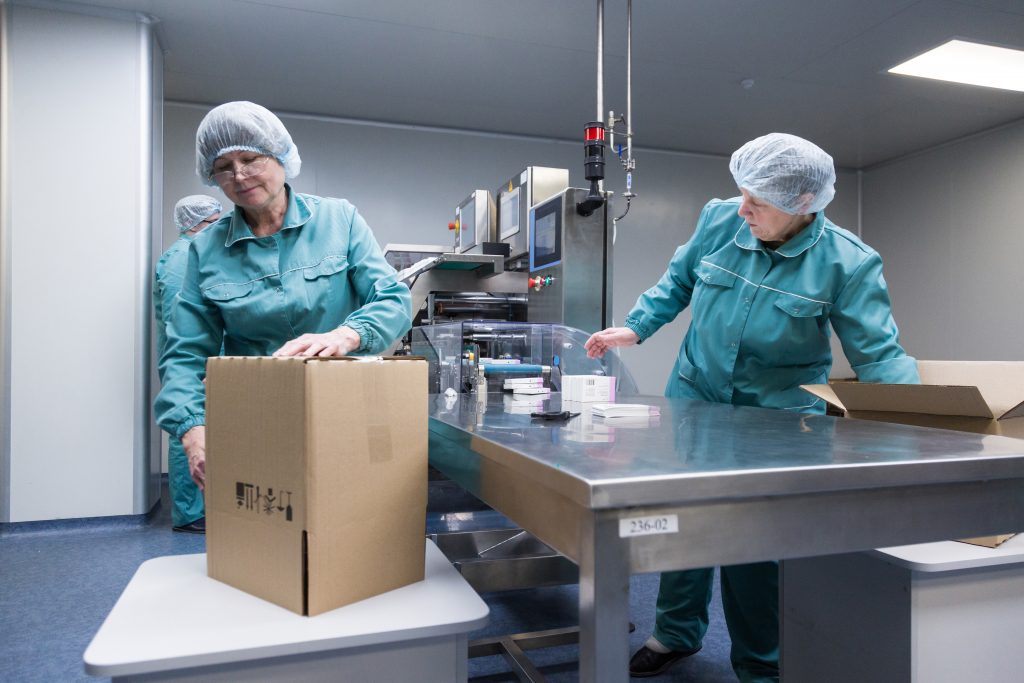
Cold Chain Logistics for Pharmaceutical Exporters: Best Practices
Moving medicines across the world is not easy. Unlike regular goods, pharmaceuticals need precise temperature control. Even a small temperature change can make them useless. This is why cold chain logistics is a must for pharmaceutical exporters.
Why Cold Chain Logistics Matters for Pharmaceutical Exporters
Medicines, especially injectables, vaccines, and biologics, need strict temperature control at all times. Even a slight temperature variation can weaken their potency. If they become too hot or too cold, they lose effectiveness and could harm patients instead of helping them.
This risk makes it critical for pharmaceutical exporters to adhere to strict cold chain practices. By ensuring precise temperature control, exporters not only comply with regulations but also guarantee that medicines remain safe and effective until they reach the end user.
Key Elements of a Strong Cold Chain System
To maintain product integrity, pharmaceutical exporters must focus on these five essential elements:
- Temperature Monitoring – Medicines must stay within a fixed temperature range. Sensors and data loggers track temperature in real-time.
- Proper Packaging – Insulated boxes, gel packs, and dry ice help maintain the required temperature during transit.
- Efficient Transportation – Refrigerated trucks, planes, and storage units keep medicines safe from temperature changes.
- Regulatory Compliance – Different countries have different guidelines for pharmaceutical storage and transport. Exporters must follow them strictly.
- Emergency Backup – Power failures and transit delays happen. Backup cooling systems ensure medicines don’t spoil.
Common Cold Chain Challenges
Cold chain logistics sounds simple, but it comes with many challenges:
- Fluctuating Temperatures – Transporting medicines through different climates is tricky.
- Equipment Failures – A broken refrigeration unit can ruin an entire shipment.
- Regulatory Issues – Pharmaceutical exporters must comply with strict international rules.
- High Costs – Maintaining a cold chain system is expensive but necessary.
Best Practices for Pharmaceutical Exporters
To overcome these challenges, exporters of pharmaceutical products should follow these best practices:
1. Use Smart Technology
Modern technology makes it easier to track shipments. GPS trackers, temperature sensors, and real-time monitoring tools provide instant updates. If a shipment faces a temperature issue, quick action can save it.
2. Train Employees
Even the best technology fails if employees don’t know how to use it. Staff must understand proper handling, packing, and shipping techniques. Regular training ensures everyone follows the correct protocols for pharmaceutical exports.
3. Select Reliable Logistics Partners
Not all carriers understand the importance of temperature control. Partnering with specialized cold chain logistics companies ensures safety. Choose logistics providers who have experience working with pharmaceutical exporters.
4. Plan for Delays
Delays are common in international shipping. Weather, customs, and transportation issues can slow deliveries. Having contingency plans like backup refrigeration units can save valuable medicines.
5. Perform Regular Audits
Pharmaceutical exporters must inspect their cold chain system regularly. Checking storage facilities, transport conditions, and packaging methods helps maintain quality. Regular audits ensure compliance with global standards.
Armein Pharmaceuticals: A Trusted Name in Pharmaceutical Exports
When it comes to pharmaceutical exports, trust and reliability matter more than anything. Armein Pharmaceuticals stands as a leading name in the export of high-quality injectables from India. Our commitment to safety, compliance, and excellence drives everything we do. We adhere to the most stringent cold chain logistics standards, ensuring that every shipment maintains its required temperature throughout transit.
With cutting-edge technology and advanced logistics, we guarantee that medicines reach their destination in optimal condition. From life-saving drugs to specialized parental medicines, every product is handled with the utmost care. Our dedicated team monitors each step, ensuring seamless and secure deliveries worldwide.
We proudly ship our injectables to Kenya, Ghana, Uganda, Malawi, Yemen, Ukraine, Chile, Peru, Philippines, Sri Lanka, Nepal, Iran, Libya, Tanzania, Ecuador, and more countries worldwide.
At Armein Pharmaceuticals, we don’t just export injectables; we deliver trust and quality with every shipment.
Sustainable Cold Chain Solutions
Pharmaceutical companies are now looking for eco-friendly cold chain solutions. Traditional refrigeration systems consume a lot of energy. Sustainable packaging materials and energy-efficient cooling methods help reduce environmental impact. Solar-powered refrigeration and biodegradable packaging are becoming popular choices among pharmaceutical exporters.
Final Thoughts
Cold chain logistics is essential for pharmaceutical exporters. Without it, medicines lose their effectiveness, and patients suffer. By using smart technology, proper packaging, and reliable logistics partners, exporters can ensure safe deliveries.
With Armein Pharmaceuticals setting new benchmarks in quality and reliability, the future of cold chain logistics is evolving toward greater efficiency and safety. Partner with us for high-quality injectables!
FAQs About Pharmaceutical Exports
How do pharmaceutical companies handle cold chain logistics in extreme climates?
Pharmaceutical exporters use specialized insulated packaging, phase change materials (PCMs), and active cooling containers to maintain stable temperatures, even in extreme heat or cold.
What happens if a cold chain shipment gets stuck at customs?
To prevent spoilage, pharmaceutical exporters use validated packaging that can maintain the required temperature for extended periods. Some countries also provide priority clearance for pharmaceutical products.
What are the ideal temperature ranges for cold-chain pharmaceutical products?
Most pharmaceutical products require storage between 2°C and 8°C, while some biologics and specialty medicines may need ultra-low temperatures as low as -80°C.
What types of pharmaceuticals require cold chain logistics?
Injectables, vaccines, biologics, insulin, and certain antibiotics require strict cold-chain management to maintain efficacy.
What role do airlines play in maintaining cold chain integrity?
Pharmaceutical-friendly airlines offer temperature-controlled cargo holds and specialized handling protocols to ensure safe air transportation of medicines.
Is sustainable cold chain logistics possible?
Yes, eco-friendly packaging, energy-efficient refrigeration, and solar-powered storage solutions are emerging as sustainable alternatives in cold chain logistics.
How does Armein Pharmaceuticals ensure compliance with cold chain logistics?
We use advanced temperature monitoring systems, specialized packaging, and reliable logistics partners to maintain strict temperature control throughout the supply chain.
